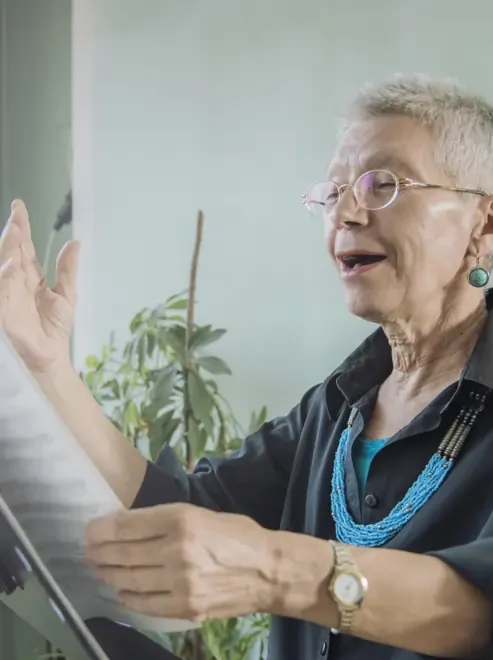3 Ways to Improve Your Musicianship

As a singer, it can be challenging to find time to improve both your singing technique and your overall musicianship. The following methods will not only keep your skills sharp but also deepen your general understanding of music.
What You Need to Know: The Top 5 Questions People Ask About Voice Lessons

Whether you’re brand new in the music community, or if you’ve been a musician for 30 years, there’s this special unspoken thing that unites musicians. It’s an obsession. It’s all we think about. It’s what we dream about, it’s what we talk about. It’s an identity we don’t just give to ourselves, we earn it. And there’s nothing more fun than connecting with other like-minded people who have also worked hard at their craft.
3 Ways to Connect With Other Singers in Boston

Whether you’re brand new in the music community, or if you’ve been a musician for 30 years, there’s this special unspoken thing that unites musicians. It’s an obsession. It’s all we think about. It’s what we dream about, it’s what we talk about. It’s an identity we don’t just give to ourselves, we earn it. And there’s nothing more fun than connecting with other like-minded people who have also worked hard at their craft.
Rediscovering the Joy of Music with Douglass Ross

In this student spotlight, we are featuring Douglas Ross, a software engineer returning from a long hiatus from music. Doug played guitar and sang in a band in his youth, but life got in the way, and his focus on music was put on hold. Doug has been with us here at Arabella’s Voice Studio for a couple of months and is diving headfirst back into his musical passion!
Learn to Sing Better Over Your Lunch Break With 15% off Lessons Today!

Learn to sing better over your lunch break with discounted weekly vocal lessons! Improve your vocal technique, and work with a vocal coach starting today!
Lutz Hu in the Spotlight: Mastering Vocal Distortion

In this Student Spotlight, we are featuring Lutz Hu. He is a biochemist about to start a PhD program at UMiami in the summer of 2024. Lutz is a virtual student here at Arabella’s Voice Studio and also plays rhythm guitar and piano. Outside of music, Lutz enjoys playing chess, he’s an avid boulderer, and he also loves to dance.
Student Spotlight: Connecting the Voice with Ethan Wright

Our Student Spotlight today at Arabella’s Voice Studio is Ethan Wright. Ethan is a graphic design artist who has a passion for motion graphics. Outside of being a singer, he loves making music videos, logos, and graphics for his friends in the music business.
Considerations for the Aging Voice

Senior Voice Lessons For The Aging Voice Arabella’s Voice Studio offers voice lessons for students of all ages, including senior learners, focusing on the unique requirements each age needs. Senior learners will learn strength and control to help maintain their voices as they age. What Is The Emphasis For Senior Voice Lessons At AVS? As […]
Damaris Fernandez-Sierra’s Musical Symphony of Growth

In this student spotlight, we celebrate Damaris Fernandez-Sierra’s dedication to musical growth and artistic exploration. Over a little more than a year, this aspiring architect has been a constant source of inspiration at Arabella’s Voice Studio. Witness her musical growth as a singer, performer and how she skillfully incorporates the ukulele into her performances, […]

